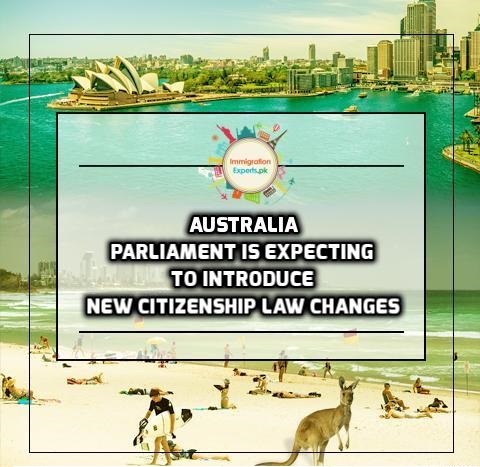051 8439995, 042 35911332

The new changes to the citizenship law are proposed to be brought in front of the Federal Parliament soon. The basic purpose of making these changes is to prove that immigrants and residents are thoroughly integrated into Australian society.
The most disturbing factor associated with these changes is the proposed increase in permanent residency requirement up to four years. At present, this period is just one year. So the applicants for Australian citizens cannot file their application prior to the expiry of this time span. Moreover, they have to fulfill English language proficiency requirements.
After the announcement of these proposed changes, numerous online petitions were initiated. All these petitions ask for the reversal of these proposed amendments.
On the contrary, Peter Dutton (Immigration Minister) states that the decision of introducing a complex English language test has been welcomed by the masses at large after this idea was made public in 2015. Mr. Dutton supported his thoughts by saying that.

“All of the research demonstrates that if people have the higher capacity, higher ability in terms of speaking and writing and listening and reading the English language, then they have a better opportunity to succeed whether it’s at school, in the workplace or in society.”
He further states that these changes are the need of the hour, as the circumstances of Australians citizens are changing with each passing year.
“I think it just highlights the need for us to make sure that we are granting citizenship to the right people, people that are going to work hard, are going to educate their children, are going to create a great life here in Australia, which is a great migrant story of our country.”
However, the Federation of Ethnic Communities’ Councils of Australia (FECCA), which is a representative body of the multicultural communities residing in Australia, is against the introduction of this kind of English language requirement.
Pino Migliorino, a senior member of FECCA shares his thoughts in following words.
“Australia is a country of immigration and forever we’ve not only received people but allowed them to work and contribute regardless of their linguistic background. I know thousands and literally thousands of older Australians now who don’t speak English well who’ve made an enormous contribution”.
The obligation to sign the Australian values statement is another hard to digest part of these proposed changes. This document is necessary to be signed by the individuals applying for Australian citizenship. Labor party is making their move with reference to supporting or opposing this particular change in the Citizenship law.
One of the most disturbing legislative changes, which are due to be passed by the Parliament is the grant of power to Immigration Minister to set aside the Administrative Appeals Tribunal (AAT). An immigration Minister may refuse the grant of citizenship by the Australian Immigration Department.
The Immigration Minister already possesses this type of authority where he/she can set aside particular decisions announced by the AAT. However, this grant of power is limited to the acceptance of visa applications and has nothing to do with the grant of Australian citizenship to the eligible candidates.
